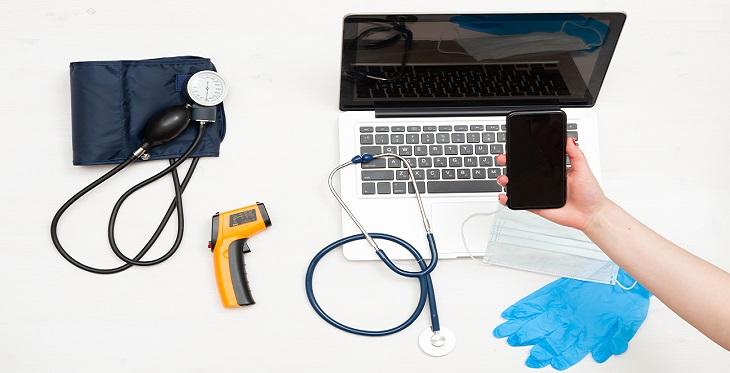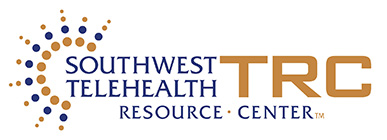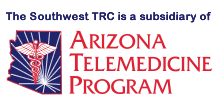
In the early days of the Covid pandemic, Dianne Connery realized something needed to be done for people in her rural Texas community to help connect folks to their medical appointments.
Connery, director of the Pottsboro Area Library in Pottsboro, Texas, said it started when one woman with pulmonary disease came to the library for help, desperate to meet with her doctor but too high risk to come to his office—a two-hour drive south to Dallas.
“Libraries are such perfect places for this because often we have the fastest internet in town, and we are used to helping people with technology,” Connery said.
Connery and her fellow librarians sprang into action—creating a private space in Connery’s office with her laptop that had a camera. That gesture allowed the woman to meet with her doctor and go over recent MRI results.
“I had never lived in a rural town until 2010 and didn’t realize how hard it is to access digital technology. You need a solid infrastructure for robust internet. Rural communities like ours don’t have that,” she said.
From that first telehealth appointment in Connery’s office grew the library’s telehealth program that’s received national recognition. However, it never would have happened without Connery, with support from the town council, having fiber installed to support a teen eSports program long before the start of the pandemic.
More community members used Connery’s office those early telehealth appointments, but through a National Library of Medicine grant and a community appeal, she was able to create a private appointment space from an old junk room and purchase the needed hardware and equipment. The next step was a unique partnership she developed with the University of North Texas Health Sciences Center to pair patients with the medical providers they needed.
People can be seen two days a week for those using Medicare and Medicaid. Another day of the week is reserved for behavioral health appointments and another day is reserved for folks seeing their regular health providers.
Connery’s work on the telehealth program doesn’t end there. The American Heart Association recently provided her library with blood pressure kits members of the community can check out. They also received a grant to hire a community health care worker to do outreach and education at the library and community spaces like the American Legion and the VFW. Now she’s focused on developing a digital literacy curriculum with the help of a three-year grant that helped her hire a digital navigator.
Connery said she’s excited to see other rural libraries in Texas start telehealth programs but hopes more funding loops back to libraries desperate for increases in their own budgets. Connery is part of a national consortium of libraries who meet monthly to discuss telehealth programming—a growing interest in other rural communities beyond her Texas borders.
Last month, a new telehealth program recently launched at two rural Pima County Library branches in Ajo and Arivaca—the first of its kind in Arizona—allowing folks with transportation or internet issues access to their doctors without having to drive several hours across the desert to nearby Tucson.
“A huge sense of relief,” is how one Ajo resident recently described her experience that helped her connect with her primary care doctor in Tucson about worrisome symptoms she experienced after recovering from Covid. At the Salazar-Ajo Library she was able to collect the vitals her doctor needed using equipment provided by the library. And in the privacy of the library’s meeting room, she met with her doctor via a laptop and the internet provided by the library to go over her symptoms and vitals.
“Being able to take my vitals and provide those to my doctor seems really important,” the Ajo resident said. “… while I was on my call with her, she had me do my vitals. We started with the blood pressure cuff, and how to apply it. Then my oxygen with the pulse rate oximeter.”
The end of the appointment her doctor determined that the symptoms were not uncommon for someone who has had Covid, allowing the Ajo resident some relief and a better understanding of her recovery.
Daniela Buchberger, Pima County Library’s Ajo branch managing librarian, said the new program, Health Connect, provides a private room for telehealth medical appointments. Inside is a laptop with a camera and equipment needed for a patient to take their own vitals: a digital scale, a thermometer, a blood pressure cuff, and a pulse rate oximeter.
A patient will need to have the link provided by their doctor, usually via email. Library staff, due to privacy restrictions, aren’t going to be able to help someone log-on or use the equipment although the patient can bring someone with them to their appointment in the study room. Each library has written instructions on laminated cards as well as easy-to-follow visuals to help guide their experience.
According to the Pima County Library, Health Connect is made possible by the Arizona State Library, Archives, and Public Records, a division of the Secretary of State, with federal funds from the Institute of Museum and Library Services. It is a joint effort between the Library, Pima County Health Department, University of Arizona’s College of Nursing, the Arizona Telemedicine Program, and United Community Health Care.
"Access to telehealth is essential for people to get the care they need when traveling to an in-person visit isn't possible,” said Ken Zambos, program manager for Workforce and Economic Development in Pima County. “By providing this service, the library is providing access to equipment that transforms healthcare delivery and positively affects healthcare outcomes."
Buchberger said a library card isn’t needed to use the room. However, reservations are needed and available in hour and half increments. Each person using a room is expected to clean all equipment after use with alcohol wipes provided. A fan in the room will be used to provide white noise to help with privacy as much as possible.
“We may not have as much traffic as other libraries, but we are an important part of the community. The library is free, so is the internet,” Buchberger said. “Not everyone here has a car or a computer, but they have us.”


